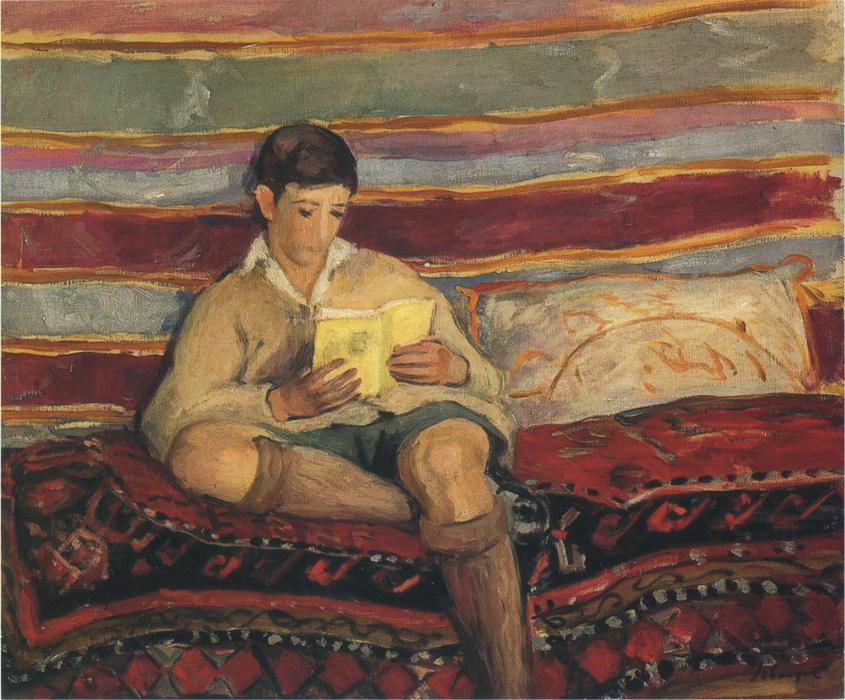by Giuliano Maciocci (November 2018)
Young Boy Reading, Henri Lebasque
The voice of my mother reading aloud pierced my consciousness intermittently. When it did, the fever ensured that her words were imprinted unforgettably into my memory, like light on a salt & silver old photographic print.
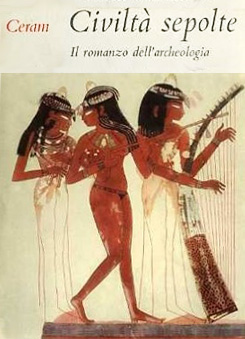 Stuck in bed due to a bout of measles, the book I was listening to was the famous Gods, Graves, and Scholars: The Story of Archaeology (Civiltà Sepolte in the Italian edition) by C.W. Ceram, given to me for my birthday. An intoxicating introduction to history to a 12-year-old and likely the trigger of an early passion for travelling, adventure, mysterious places, exotic peoples.
Stuck in bed due to a bout of measles, the book I was listening to was the famous Gods, Graves, and Scholars: The Story of Archaeology (Civiltà Sepolte in the Italian edition) by C.W. Ceram, given to me for my birthday. An intoxicating introduction to history to a 12-year-old and likely the trigger of an early passion for travelling, adventure, mysterious places, exotic peoples.
At 15, after good school results (more luck than hard work, I’m afraid), I finally earned the reward I had been pestering my parents for: a school holiday in the U.K., namely to learn English (Italian school holidays were gorgeous three-and-a-half-month-long summer affairs).
For two wonderful summers I went to an English school in Chorleywood, just outside London. The ‘institute’—rather more an informal and friendly family arrangement, thank goodness—operated as a language school for foreign girls during winter but catered for boys as well during the long European summer holidays. It was a sprawling, lovely old farmhouse in a green, wooded area where I had a fantastic time and, incidentally, learned decent English (and acceptable French, as many of the girls were from there).
My acquired language skills opened up a wealth of reading material of which I readily took advantage of (in later years I would also learn Spanish and Portuguese: easy for me, an Italian speaking person).
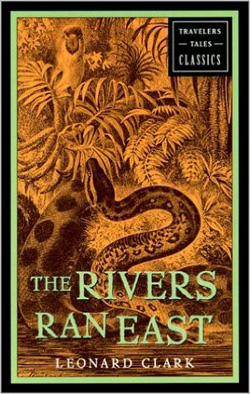 I ran into another book that re-kindled my wanderlust by pure chance: one night, idly roaming around the streets of Rome, I happened onto a still open newsstand and started rummaging through the books, new and used, that were on offer. One colorful cover struck me: an anaconda slithering on the jungle floor. Irresistible.
I ran into another book that re-kindled my wanderlust by pure chance: one night, idly roaming around the streets of Rome, I happened onto a still open newsstand and started rummaging through the books, new and used, that were on offer. One colorful cover struck me: an anaconda slithering on the jungle floor. Irresistible.
A well thumbed but still decent copy of Colonel Leonard Clark’s The Rivers Ran East was staring at me from the counter: I took it home and didn’t stop reading it until I finished it. And then I started it again, foregoing sleep, afraid of having overlooked some detail. Clark’s other epic exploits, Yucatan Adventure, The Marching Wind, and A Wanderer Till I Die soon located and purchased, also gave me many hours of pleasure.
My family had a well stocked library so I grew up in the company of London’s White Fang and Call of the Wild, Kipling’s Kim, Conrad (my livre de chevet is still Heart of Darkness), Greene, Maugham, Hemingway only to move on to the writings of my hero Sir Francis Richard Burton, T. E. Lawrence, Freya Stark, Wilfred Thesiger, Captain Cook’s Journals or travel staples like Chatwin and Theroux. Darwin, Levi-Strauss and Frazer’s Golden Bow provided a good starting point for further pursuits of a more scientific nature.
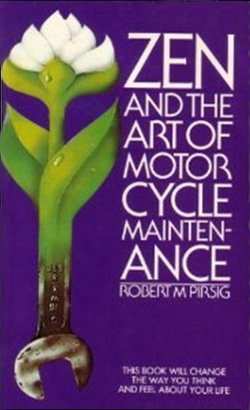 Talking about travel ‘classics’ I should confess, before being accused of not even mentioning it within the present short list, that Kerouac’s On the Road never really did anything for me. I would rather read and re-read Pirsig’s wonderful Zen and the Art of Motorcycle Maintenance, a profound discourse about—let me oversimplify—how to live. Nothing Kerouac would have appreciated, preoccupied as he was with the conformism of playing the anti-conformist.
Talking about travel ‘classics’ I should confess, before being accused of not even mentioning it within the present short list, that Kerouac’s On the Road never really did anything for me. I would rather read and re-read Pirsig’s wonderful Zen and the Art of Motorcycle Maintenance, a profound discourse about—let me oversimplify—how to live. Nothing Kerouac would have appreciated, preoccupied as he was with the conformism of playing the anti-conformist.
Whenever and wherever I traveled, I always tried to imagine how places I was seeing and peoples I was meeting with must have appeared to the first European explorers: old travel journals and diaries are great for this. Sometimes they are comic in their presumption and arrogance, sometimes dramatic for the terrible experiences they recount, often full of surprise at the marvels of nature and man.
I will not presume to point out to informed readers travel or adventure books they are certainly familiar with. I shall however mention a few gems which I read and loved hoping that at least a few might have escaped their attention, especially the younger readers’ attention, and that they might enjoy them as I did.
The Naturalist on the River Amazons, by Henry Walter Bates, is one of those books that manage to convey rich scientific information while entertaining and fascinating the reader. In 1848, Bates followed Wallace (of Darwin’s fame) to South America in a joint expedition up the river Amazons. Apart from discovering and doc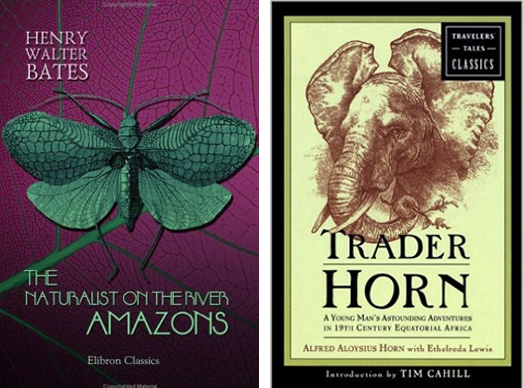 -umenting about 8000 new species during his 11 years of explorations (as Darwin himself attests in his introduction to Bates’ journal), his diary is a great source of information of all kinds—not limited to Natural History—about his experiences up and down the mighty river.
-umenting about 8000 new species during his 11 years of explorations (as Darwin himself attests in his introduction to Bates’ journal), his diary is a great source of information of all kinds—not limited to Natural History—about his experiences up and down the mighty river.
From Trader Horn: A Young Man’s Astounding Adventures in 19th Century Equatorial Africa, a book published in 1932 (my copy has a great introduction by John Galsworthy), was born my love of Africa that would never abandon me. An old European adventurer, Alfred Aloysius Horn, recounts his incredible life as a hunter, trader, diplomat, military leader, what-have-you. An ode to being young and brave and the sadness of lonely old age with only memories as companions.
 South with Scott by Admiral Evans, is a wonderful, engrossing book recounting the ill-fated Terra Nova Expedition of 1910. Despite Scott having been a controversial hero and his reputation gone through various revisions and counter revisions, there is no doubt that his efforts benefitted science and advanced the exploration of Antartica. There is a lovely little museum in Cambridge (UK), the Scott Polar Research Institute on Lensfield Rd., which is worth a few hours of your time (check first if it’s open to the public beforehand).
South with Scott by Admiral Evans, is a wonderful, engrossing book recounting the ill-fated Terra Nova Expedition of 1910. Despite Scott having been a controversial hero and his reputation gone through various revisions and counter revisions, there is no doubt that his efforts benefitted science and advanced the exploration of Antartica. There is a lovely little museum in Cambridge (UK), the Scott Polar Research Institute on Lensfield Rd., which is worth a few hours of your time (check first if it’s open to the public beforehand).
A little known book by John Steinbeck, The Log from the Sea of Cortez, is the diary of his marine expedition to Baja California on a rented boat with his friend Ed Ricketts, a biologist, prematurely killed in an accident. The collection of specimen leaves time to the two great friends to chat, observe, think and reflect. A breath of fresh air: amusing, informative, always intelligent.
Tigrero, by Sasha Siemel, is one of those books you need to put in context (we are talking early ‘20s here) but once you do, there is nothing to diminish the sheer courage of a man hunting jaguars armed only with a spear to protect the Indian farmers of the Pantanal, in the Brazilian Mato Grosso. On the same class as The Man-Eaters of Tsavo by Colonel J.H.Patterson, this book is the ultimate classic adventure; it will make you restless and envious.

Into the Heart of Borneo, a very enjoyable, funny and fresh account of an expedition to unexplored areas of the region. An odd couple, a naturalist, Redmond O’Hanlon and a poet, James Fenton, set out in the insect-infested sauna of the jungle. I have since visited Kalimantan (not the north-west region this book describes) so it was interesting for me to compare ‘impressions’. Reminiscent of Conrad but extremely witty, you will smile, laugh and love every page.
If there is a book that takes me back to the Africa I love and cherish, it is The Flame Trees of Thika: Memories of an African Childhood, a trilogy by Elspeth Huxley. Thika is a nostalgic memoir of growing up in Africa, a loving look at the Kenya of Elspeth’s childhood and a hint at the cloud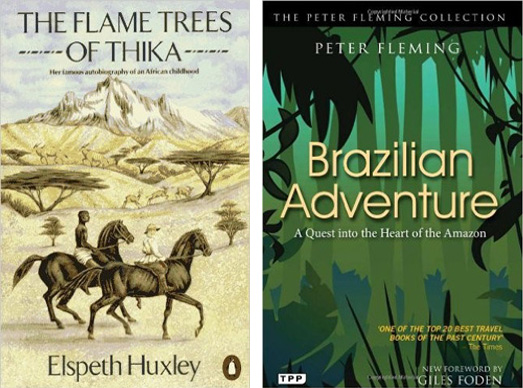 s in its future. Critical but always sensitive and understanding, a joy to read. It should be part of any school curriculum.
s in its future. Critical but always sensitive and understanding, a joy to read. It should be part of any school curriculum.
Peter Fleming, brother of Ian Fleming of James Bond fame, was a correspondent for the Times and a great travel writer. His Brazilian Adventure, the search for Colonel Fawcett (no book about Colonel Fawcett and the Lost City of Z escaped me after reading this), News from Tartary, With the Guards to Mexico! and others gave me many hours of learning and fun. Look him up: his British dry humor and terse prose, telling us about hostile environments and little known territories makes his writings a pleasure to read.
Call me partisan but despite Patrick O’Brian’s millions of fans, I feel obliged to mention his Aubrey-Maturin novels: a fantastic tour de force that will make the reader go back to his books again and again.
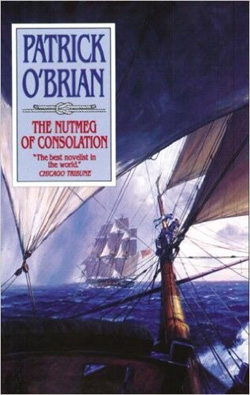 Set during the Napoleonic wars, it chronicles the friendship between a Royal Navy captain and a Spanish ship doctor (and Irish-Catalan intelligent agent for the British Admiralty, by the way). Don’t think for a moment this is all boring naval mumbo-jumbo. The meticulously researched and wonderfully written in fascinating period language novels—twenty in all—will be your magic carpet on which to follow the two friends (and their families, troubles and joys) to ‘800 England, Australia, Mauritius, trapped in the infamous Paris’ Temple prison, spying in Malta, to the Dutch East Indies, Ireland, Sierra Leone, Cape Horn and many more.
Set during the Napoleonic wars, it chronicles the friendship between a Royal Navy captain and a Spanish ship doctor (and Irish-Catalan intelligent agent for the British Admiralty, by the way). Don’t think for a moment this is all boring naval mumbo-jumbo. The meticulously researched and wonderfully written in fascinating period language novels—twenty in all—will be your magic carpet on which to follow the two friends (and their families, troubles and joys) to ‘800 England, Australia, Mauritius, trapped in the infamous Paris’ Temple prison, spying in Malta, to the Dutch East Indies, Ireland, Sierra Leone, Cape Horn and many more.
Undoubtedly inspired and spurred on by my curiosity and reading tastes, I have visited, worked and lived in many countries and had my share of adventures. Nothing stops you from doing the same though, even if you would rather sit comfortably on your favorite armchair while doing so: from Homer’s The Odyssey to Andy Weir’s The Martian, just take your pick. After all, books, to paraphrase Prospero, are such stuff as dreams are made on.
_________________________________
Giuliano Maciocci has worked as Manager and Head of Corporate Support Services for private and international organizations, including the UN, in many countries. He now divides his time between Rome, Italy and Harare, Zimbabwe.
NER on Twitter @NERIconoclast
- Like
- Digg
- Tumblr
- VKontakte
- Buffer
- Love This
- Odnoklassniki
- Meneame
- Blogger
- Amazon
- Yahoo Mail
- Gmail
- AOL
- Newsvine
- HackerNews
- Evernote
- MySpace
- Mail.ru
- Viadeo
- Line
- Comments
- SMS
- Viber
- Telegram
- Subscribe
- Skype
- Facebook Messenger
- Kakao
- LiveJournal
- Yammer
- Edgar
- Fintel
- Mix
- Instapaper
- Copy Link
